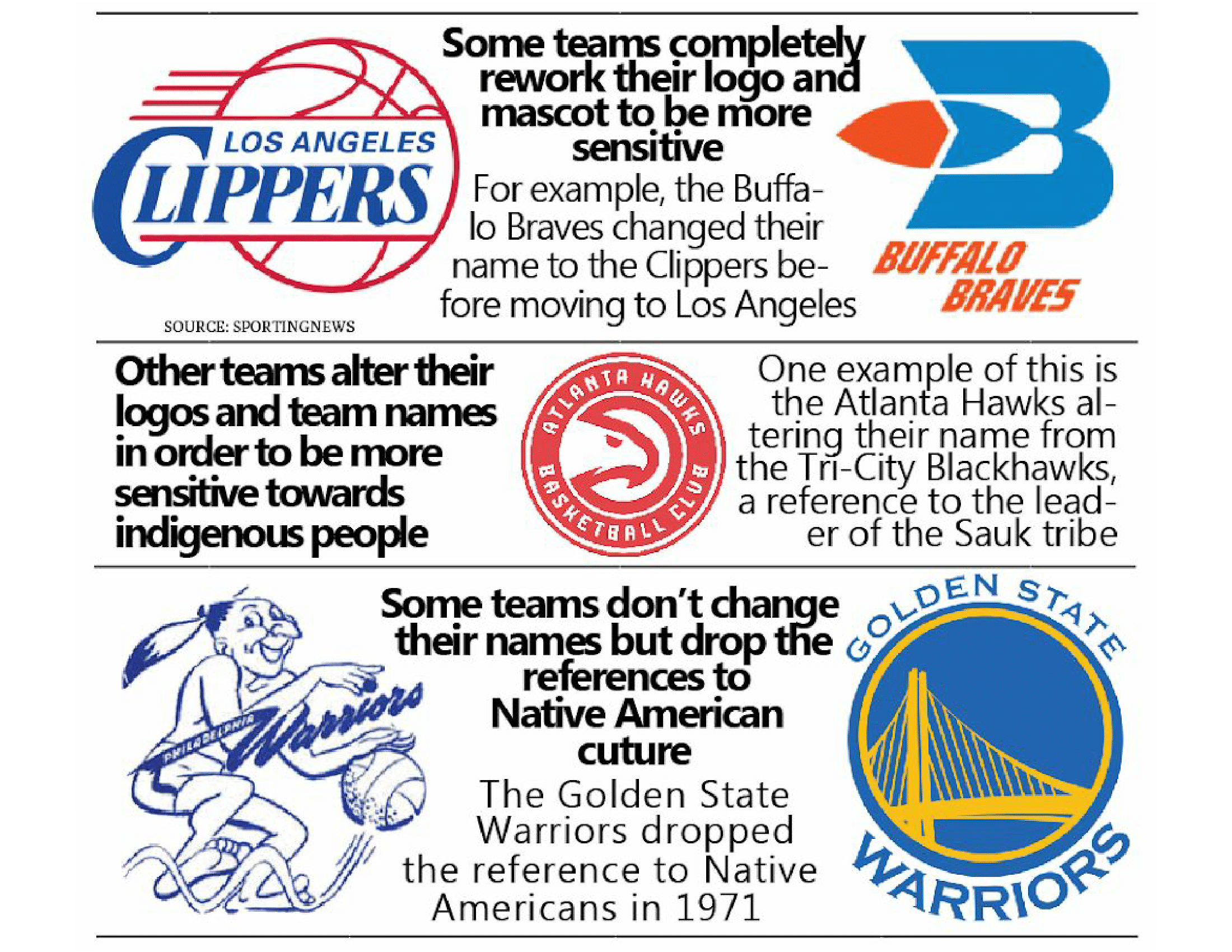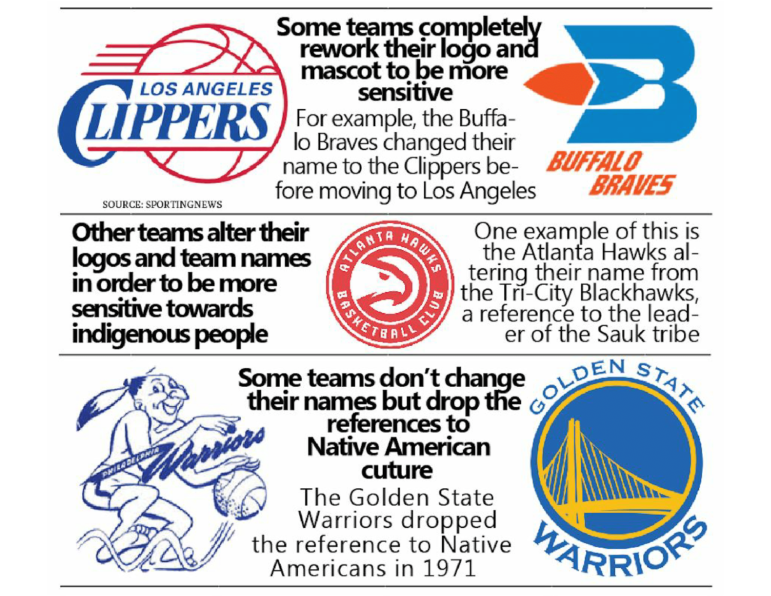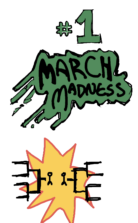
Mascots are a integral part of sports teams around the country, helping connect fans and players. However, many mascots have begun to generate discussion regarding their relations to various ethnic groups
The prevalence of Native American-based mascots and team names has lately generated controversy regarding the sensitivity to Native American cultures. Professional sports teams have received criticism for their Native American mascots.
The Cleveland Indians, a Major League Baseball team, have been condemned for their Chief Wahoo logo, which is a bright red caricature of a Native American. The chairman and CEO of the team, Paul Dolan, has agreed to remove the logo from the team’s uniforms in 2019.
This planned change received praise from Ray Halbritter, the CEO of the Oneida Indian Nation.
“It was really something to see professional sports leagues catching up to what younger generations already intuitively understand — that we all strive to be respectful and inclusive,” Halbritter said to Syracuse.com.
On the other hand, the Washington Redskins of the National Football League received criticism in regards to its team name, an offensive term once used describe Native Americans. The team has not taken action in response to the criticism its mascot has received. Social activist groups such as the Rising Hearts Coalition and the Change the Mascot campaign have denounced the Redskins’ refusal to cooperate.

Native American-related mascots are not merely restricted to the names of ethnic groups and tribes. Until 2017, Amherst College’s mascot was Lord Jeff, named after Lord Jeffery Amherst, who gave Indians blankets infected with smallpox.
“He was a bad guy,” said athletic director Steve Sell. “They finally said, ‘OK, we have to change this nickname.’ They are now called the Mammoths.”
Regarding this change, the Chair of the Board of Trustees at Amherst, Cullen Murphy, released a statement that said, “The aim will be to generate as much engagement as possible, and to find something — something organically associated with Amherst, reflecting our collective history — that we can all rally around. That is what mascots are supposed to provide.”
“My position,” Sell said, “is that if there was someone who did something that did something really really horrible in human history, or if the nickname was offensive to people, then they should probably take a look at changing it.”
Local high schools such as Jefferson, Sequoia, Vallejo and Armijo have Native American-based mascots or team names.
Sequoia’s official mascot is the Raven, but its team name is the Cherokee, named after the Cherokee tribe of the Southeastern United States. The student body has mixed opinions on the team name.
“To me as a person, I feel like it doesn’t mean anything towards me and my culture but I do understand and feel for the people that are being targeted because of this,” said Sequoia senior Simone Lauese. “I honestly think that it isn’t a huge big deal because we are representing them as we go to the field or court.”
Some students are still offended by the team name. However, Sequoia junior Devansh Mehra believes the reasons behind their convictions may stem from peer pressure rather than cultural appropriation.
“I’ve always heard people who claim they’re offended by it, but it always felt like they were only offended by it because they felt like it was the normal thing to do,” Mehra said. “We’re the Cherokees. Forever and always. It’s historical and if anything, it references the positive attributes of the Cherokee tribe.”
“I’ve always heard people who claim they’re offended by it, but it always felt like they were only offended by it because they felt like it was the normal thing to do”
In the case of Jefferson High School, athletic coach Michael Morleau believes the origin of the “Indians” mascot stems from courtesy.
“From what I’ve known, it was just a respect for when the school first opened. This was one of the first schools in the district,” Morleau said. “I forgot the name of the tribe that was here, but it was just one of those respectful things where the tribe that was inhabited here, they came up with the name ‘Indians.’”
Jefferson High School changed its mascot to the Grizzly in 2015.
“[We changed just] to be politically correct,” Morleau said. “I guess a lot of schools are doing it and it’s just something that I feel. That’s the thing — I feel if one school does it, then all of the schools have to do it.”
The change to the new mascot was decided through an online poll for students and teachers. But some of the staff who had been associated with the school for a long time were displeased.
“A couple teachers that’s been here since the beginning, 20 to 25 years. We’ve got teachers here who were students here,” Morleau said. “So of course it’s hard to adjust because they have Indian pride, you know, Jefferson Indian pride.”
Mascots will always be an integral part of a sports team. Be it positive or negative, history between Native Americans and colonists is cemented in the mascots of various teams. There are some who argue that the mascots are appropriation of Native American culture, while others believe the mascot honors Native American history.
“I look at both sides,” Morleau said. “I understand, but at the same time, some schools are named Indians, Cherokees, Apaches in honor. And that’s why this school was named Jefferson Indians was to honor the Native Americans who were here, who inhabited this part of Daly City.”
From the high school to professional level, the clash between tradition and sensitivity towards Native American culture has left question as to whether or not recent criticism will result in action on part of teams to change their mascots and names.



